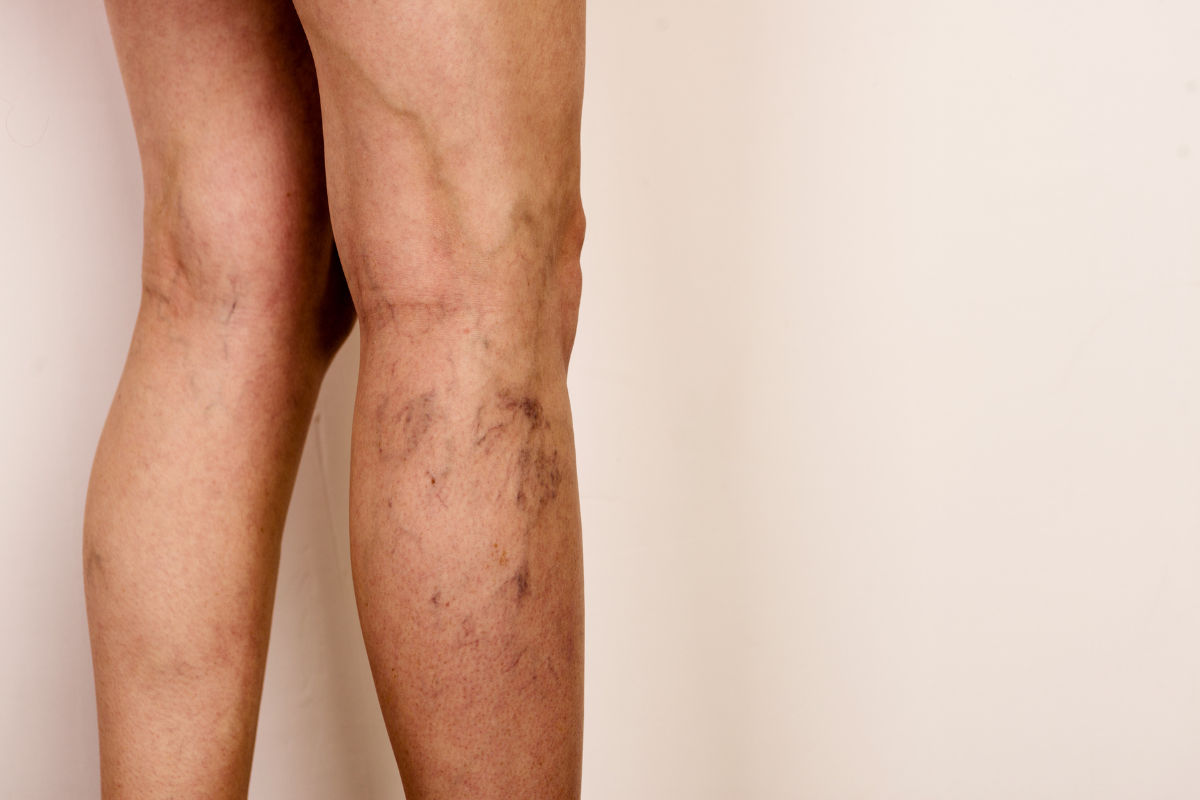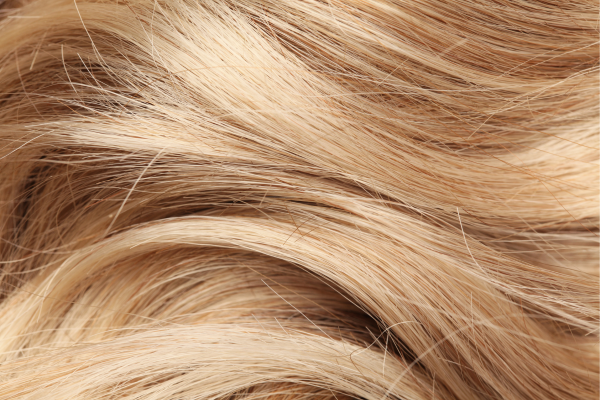Collagen, varicose veins, spider veins - superficial blood vessels

Collagen, varicose veins, spider veins - superficial blood vessels
Because collagen strengthens the walls of veins, a lack of this protein has been linked to the development of varicose veins and spider veins. Weakened, less elastic vein walls cause blood to pool inside the vein, which eventually stretches the blood vessel/vein to the point where it enlarges and forms a visible varicose vein. Without collagen, our skin thins, making these blood vessels more visible.
As a powerful antioxidant, vitamin C protects your veins from harmful free radicals, and it also helps keep your veins strong and elastic. Our food supplements with collagen and vitamins contain extra added vitamin C.
B vitamins play many important roles in keeping you healthy, but more specifically for vein health, focus on vitamin B12 (cobalamin) and folic acid (vitamin B9), which help prevent clotting problems that can lead to varicose veins and visible blood vessels. Zinc, vitamin C and vitamin D can also prevent varicose veins and visible blood vessels.
Silicon keeps the blood vessels elastic and strengthens the connective tissue. Silicon can therefore improve other symptoms related to weakened connective tissue, such as varicose veins and superficial blood vessels.
What are vasculature or superficial blood vessels?
Superficial blood vessels on the legs are called vasculature, and are dilated blood vessels that lie close to the surface of the skin and form spider web-like patterns . It is commonly found on the legs, but can also be found on the face.
Which dietary supplement with silicon is best for preventing varicose veins and visible blood vessels?
Choose a food supplement with silicon that also contains collagen for the best effect. Also supplementing with a dietary supplement with vitamin B9 and vitamin B12 counteracts the appearance of visible varicose veins and visible blood vessels even more. These b vitamins also help reduce homocysteine in the bloodstream, a substance associated with recurrent blood clots. They also strengthen blood vessels and help repair damaged varicose veins.
Can collagen counteract visible blood vessels in the face?
Collagen supplements can reduce varicose veins (superficial blood vessels) on the legs, face, nose and thighs.
Can collagen reduce varicose veins (visible blood vessels) on the legs?
Collagen improves the elasticity and firmness of the skin and prevents and reduces the number of wrinkles and reduced vein networks on the face, as well as on the legs, nose and thighs.
Why is collagen important for reducing varicose veins and visible blood vessels?
Collagen, which primarily consists of different amino acids, acts as a "binder in the body". It is what gives strength and elasticity to your skin, tendons, ligaments, cartilage and blood vessels, including veins. As we age, our bodies produce less collagen, so supplements are sometimes needed to replace the lost protein. Aging isn't the only reason we lose collagen; smoking and sun damage can also eat away at our collagen reserve.
Because collagen strengthens vein walls, a lack of this protein has been linked to the development of varicose veins and spider veins. Weakened, less elastic vein walls cause blood to pool in the vein and eventually stretch it to the point where it enlarges and forms a visible varicose vein. Without collagen, our skin thins out, making those spider vein bulges more visible.
Collagen is important for maintaining vein health.
Which dietary supplement is best for preventing varicose veins?
Given collagen's role in strengthening vein walls, a collagen supplement can prevent varicose veins and visible blood vessels.
Can collagen counteract spider veins?
Varicose veins, also called spider veins, are small veins that lie directly under the surface of the skin and are either bluish or reddish in color . They usually develop on the legs and occur when the vein valves begin to leak. This means that the blood cannot flow back to the heart as normal and starts looking for new routes instead. Because collagen strengthens vein walls, a lack of this protein has been linked to the development of varicose veins and spider veins. Weakened, less elastic vein walls cause blood to pool in the vein and eventually stretch it to the point where it enlarges and forms a visible varicose vein or spider vein.
Which diet is best to counteract visible blood vessels and varicose veins?
A diet filled with certain vitamins strengthens the veins. Vitamin C, for example, increases the production of collagen fibers, which keeps the vein walls strong and flexible and prevents leakage from the vein. It also prevents broken capillaries that appear as veins. Fruits and vegetables such as oranges, strawberries and red peppers are good sources of vitamin C.
In addition to vitamin C, vitamin E has vein-strengthening properties. It promotes proper circulation so you are less likely to develop blood clots. And like vitamin C, vitamin E keeps the veins strong and resilient. To get more vitamin E in your meals, follow the Mediterranean diet - this means including more vegetable oils, such as olive oil, nuts and wheat germ, in your diet. Georgia's famous peaches are also loaded with vitamins C and E!
Another way to increase collagen production and build vein strength is to eat more protein. Plan your meals around lean proteins such as fish or lean meat, or choose plant-based proteins such as soy.
Preventative measures such as a healthy diet and exercise can reduce the risk of varicose veins or lessen their discomfort if you already have swollen veins.
Can zinc prevent varicose veins and visible blood vessels?
Zinc can help prevent and counteract varicose veins. A compelling body of evidence suggests that zinc can help block the ill effects of obesity (which can cause varicose veins) in the body. Zinc also has anti-inflammatory properties.
Can low vitamin D cause varicose veins?
Vitamin D makes arteries and blood vessels more elastic to support proper blood flow. If your vitamin D levels are low, your veins can become more stiff, putting you at risk of venous problems such as varicose veins and also superficial blood vessels.
Can vitamin C counteract superficial blood vessels and varicose veins in the skin?
Vitamin C helps by promoting good blood circulation. The vitamin helps to reduce inflammation and is important to help with the production of collagen, the most abundant protein in the body. Vitamin C plays a crucial role by strengthening the walls of our veins, promoting healing and protecting the membranes against harmful free radicals. Adding some berries, broccoli, potatoes, tomatoes, oranges and lemons to your diet can help reduce unsightly varicose veins. Or eating collagen peptides with vitamin C.
Can vitamin B12 (cobalamin) counteract superficial blood vessels and varicose veins?
B vitamins fight several health problems. For example, vitamin B12 helps with blood circulation and lowers cholesterol. If this vitamin is taken consistently, vitamin B-12 can prevent the appearance of varicose veins and superficial blood vessels.
Is folic acid good for vein health and which vitamins prevent spider veins?
Spider veins are superficial blood vessels visible under the skin. B vitamins that are good for vein health include vitamin B6, vitamin B12 + folic acid, thiamin, riboflavin, niacin, biotin, and pantothenic acid. These vitamins can help prevent clotting, build collagen and elastin, balance cholesterol, reduce inflammation, and strengthen veins and capillary walls.
- Tags: Hud/Skin Kollagen/Collagen








